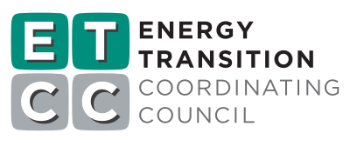Project Info
ACTIVE
Project Title
Modeling CO2 System Refrigeration Loads
Project Number ET24SWE0046 Organization SWE (Statewide Electric ETP) End-use Process Loads Sector Commercial Project Year(s) 2024 - 2026Description
Transcritical carbon dioxide (TC CO2) is emerging as the preferred low Global Warming Potential (GWP) option for commercial refrigeration systems in supermarkets and grocery stores. The unique system architecture and operating characteristics of CO2 make it difficult to model because these systems are mass flow dependent and include different components than traditional hydrofluorocarbon (HFC) systems. Current energy models don’t accurately account for this.
VEIC and Effecterra propose developing energy modeling software for CO2 refrigeration systems based on OpenStudio, EnergyPlus, and ancillary analysis tools that builds off the work and recommendations completed in ET22SWE0025 Next Generation Refrigeration Analysis Tool Proof of Concept, 2023. This project will address the primary recommendations presented in the previous study:
• A more detailed study of the interactions between refrigeration cases and indoor store conditions.
• A continuation of [the previous] study that focuses on Transcritical CO2 systems.
• Advance the development of a comprehensive compressor library that is compatible with EnergyPlus inputs and includes active participation of vendors.
• Begin the full software development process leveraging the modeling framework suggested in [the previous] report.
This project aims to update and refine existing analysis tools, improve modeling methodologies through a validation process, and apply lessons learned to the automated modeling workflow that can serve as the underlying framework for future software tools. The goal is to support utility programs by building open-source models for TC CO2 refrigeration systems that are flexible, transparent, and efficient in both new and existing stores that will provide a streamlined and structured approach for CA IOUs to claim savings on these projects. The proposed validation study will improve and adapt OpenStudio tools to natural refrigerant systems, which have not consistently been captured due to unsubstantiated analysis methodologies, and provide a cost-effective modeling approach for smaller, independent, and DAC/HTR grocers.
Previous studies have identified mapping evaporator loads as one of the primary areas for model improvement. Refrigeration loads in supermarket applications are highly variable – affected by zone temperatures, humidity levels, stocking schedules, consumer trends, etc. – but most modeling tools use a static load, either at 100% of evaporator capacity or an arbitrary derated value based on equipment capacity. This project will collect real-time data from two supermarkets that are currently operating TC CO2 with advanced case controllers and install additional sensors to collect more granular meter data that will create a baseline for the model validation. The data will be used to identify methods to more accurately predict the correlation between store conditions and resulting refrigeration loads, to improve zone level modeling.
Effecterra will lead the design and implementation of the site monitoring package for the existing supermarket systems and will perform the initial data analysis. VEIC will develop and refine the software packages, files, and scripts necessary to run the defined analysis and will verify the fundamental input and output values of the model. Additionally, VEIC will perform sensitivity analysis and validation on the OpenStudio modeling framework to ensure it appropriately represents the target project population.
